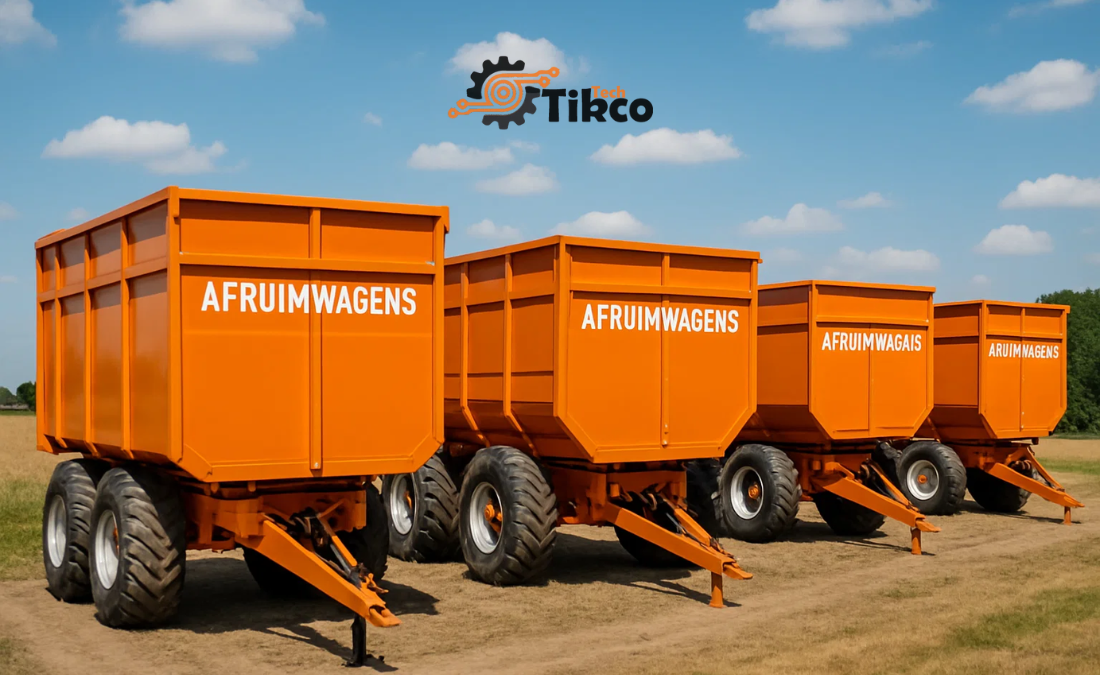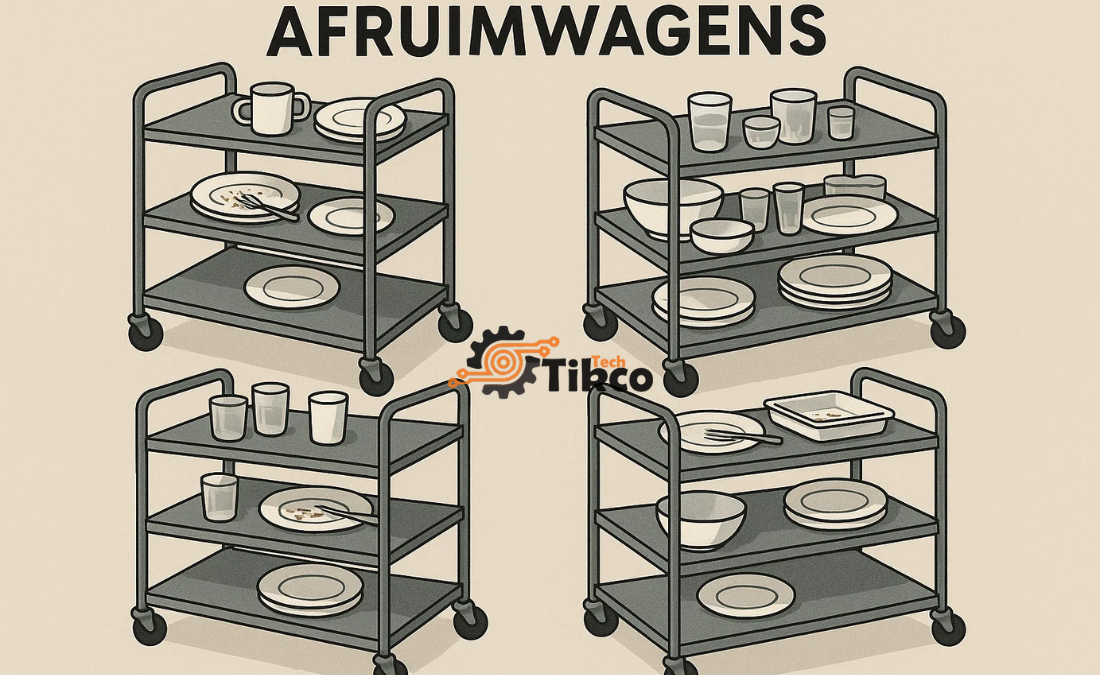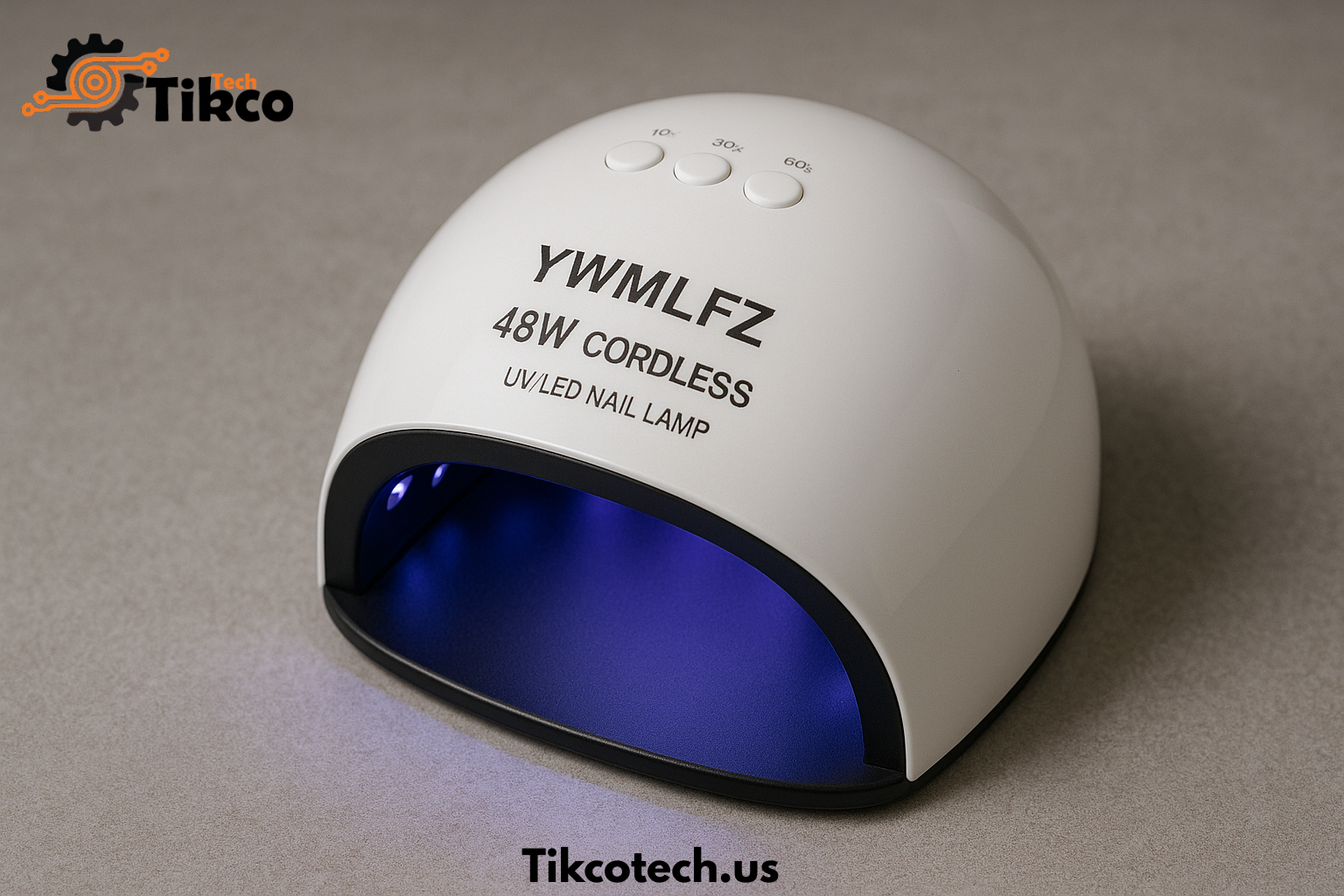Introduction to Afruimwagens
The term afruimwagens originates from the Dutch language and can be directly translated to mean “clearing wagons” or “harvesting carts.” These specialized vehicles or carts are primarily used in the agricultural industry to collect, transport, and process crops after harvesting. In recent years, afruimwagens have become increasingly important in modern farming due to the growing demand for efficiency, productivity, and sustainability in food production.
This article will explore what afruimwagens are, their types, uses, technological advancements, and their importance in agriculture today.
The Definition of Afruimwagens
An afruimwagen is essentially a piece of farming equipment designed to gather harvested crops such as potatoes, sugar beets, carrots, or grains. Once crops are pulled from the ground or cut in the field, afruimwagens are used to collect and transport them for storage or further processing.
Unlike traditional carts, afruimwagens are equipped with features that allow them to handle heavy loads, operate efficiently in rough terrains, and minimize crop damage during transportation. They play a vital role in the harvesting chain, making the process more streamlined and cost-effective.
Historical Development of Afruimwagens
The concept of afruimwagens dates back to the early mechanization of agriculture. Initially, farmers relied on manual labor and simple carts pulled by animals to clear harvested crops. However, as farming operations expanded and demands grew, there was a pressing need for machines that could handle larger volumes.
In the mid-20th century, afruimwagens evolved into more advanced forms with hydraulic systems, reinforced frames, and better load capacities. Today, they are highly mechanized, often connected to tractors or self-propelled harvesters, ensuring maximum efficiency.
Types of Afruimwagens
There are different categories of afruimwagens, depending on the type of crop and farming scale. Some common types include:
1. Potato Afruimwagens
These are specifically designed to collect and transport potatoes. They often include features like soil-separating conveyors and soft unloading systems to reduce crop damage.
2. Beet Afruimwagens
Sugar beet farming requires afruimwagens with high durability, as beets are bulky and heavy. These wagons usually have large loading capacities and reinforced bodies.
3. Grain Afruimwagens
For grain crops, afruimwagens function similarly to grain carts, transporting harvested grains from combines to storage facilities or transport trucks.
4. Universal Afruimwagens
Some afruimwagens are multipurpose, capable of handling different types of crops depending on attachments and internal design.
Advantages of Using Afruimwagens
The adoption of afruimwagens offers several benefits to farmers and agricultural businesses:
- Efficiency: They speed up the harvesting process, reducing time spent in the field.
- Reduced Labor Costs: With mechanized wagons, less manual labor is required.
- Minimized Crop Loss: Advanced handling systems help prevent damage to delicate crops like potatoes or carrots.
- Higher Productivity: Afruimwagens can carry large loads, ensuring fewer trips across fields.
- Versatility: Modern afruimwagens can be adapted to different crops and field conditions.

Afruimwagens and Modern Agricultural Technology
In today’s era of smart farming, afruimwagens are increasingly integrated with cutting-edge technology. Some technological trends include:
1. GPS and Precision Farming
Modern afruimwagens are often equipped with GPS systems that allow farmers to monitor their location and optimize field routes. This reduces fuel consumption and soil compaction.
2. Automation
Some afruimwagens are semi-automated, requiring minimal human intervention. Sensors and onboard computers help control loading and unloading efficiently.
3. Telematics
Farmers can track the performance of their afruimwagens remotely using telematics. This includes monitoring load capacity, travel distance, and maintenance needs.
4. Sustainability Features
Eco-friendly afruimwagens are being developed with lower fuel consumption and materials designed for durability and recycling.
Key Manufacturers of Afruimwagens
Several companies specialize in the production of afruimwagens, catering to different agricultural needs. Well-known brands include:
- Grimme – A German manufacturer known for its potato and beet harvesting equipment.
- Dewulf – Specializes in potato and root crop machinery.
- Vervaet – Focuses on beet and root crop harvesting wagons.
- Krampe – Provides high-capacity transport solutions suitable for multiple crop types.
Each manufacturer offers unique designs and features that improve efficiency and reliability in farming operations.
Maintenance and Care of Afruimwagens
To ensure longevity and efficiency, proper maintenance of afruimwagens is crucial. Farmers should:
- Regularly check hydraulic systems and conveyor belts.
- Lubricate moving parts to avoid mechanical wear.
- Inspect for rust and clean wagons after each season.
- Monitor tire pressure for field stability.
- Perform annual servicing by professionals to maintain optimal performance.
Regular upkeep not only prolongs the lifespan of afruimwagens but also minimizes downtime during crucial harvest periods.
Challenges Associated with Afruimwagens
While afruimwagens are highly beneficial, there are some challenges farmers face:
- High Initial Costs: Advanced afruimwagens can be expensive to purchase.
- Maintenance Requirements: Mechanical and hydraulic systems need regular care.
- Fuel Consumption: Larger wagons can consume significant amounts of fuel if not optimized.
- Soil Compaction: Heavy wagons may cause soil damage if overused on wet fields.
Despite these challenges, the long-term benefits often outweigh the drawbacks.
The Future of Afruimwagens
The future of afruimwagens looks promising as innovation continues to drive the agricultural machinery industry. In the coming years, we can expect:
- Fully autonomous afruimwagens capable of operating without drivers.
- Electric-powered wagons to reduce carbon footprints.
- AI-driven monitoring systems for load optimization and crop protection.
- Stronger yet lighter materials for better efficiency and reduced soil impact.
As farming becomes more digitized, afruimwagens will play a central role in ensuring sustainable and efficient food production.
Conclusion: The Importance of Afruimwagens in Agriculture
In conclusion, afruimwagens are indispensable tools in modern farming. From their humble beginnings as simple carts to today’s technologically advanced machinery, they have revolutionized the way crops are collected and transported. Their efficiency, versatility, and contribution to sustainable farming make them a valuable asset for farmers worldwide.




